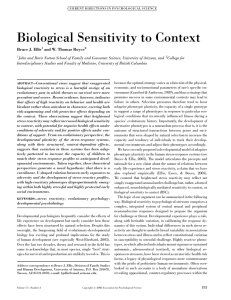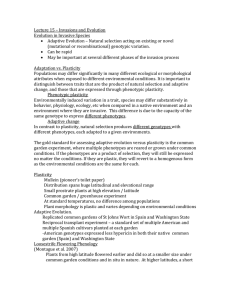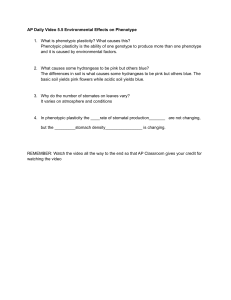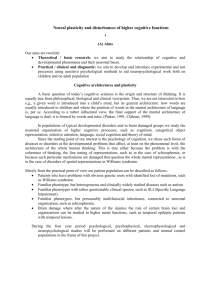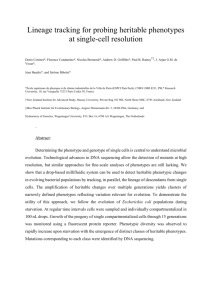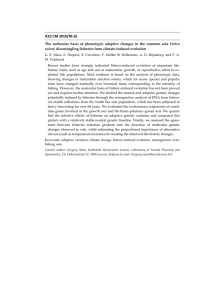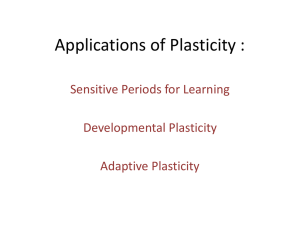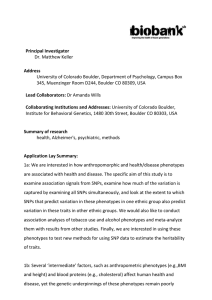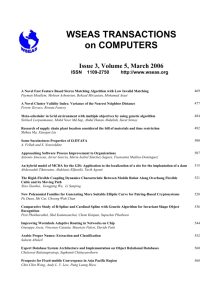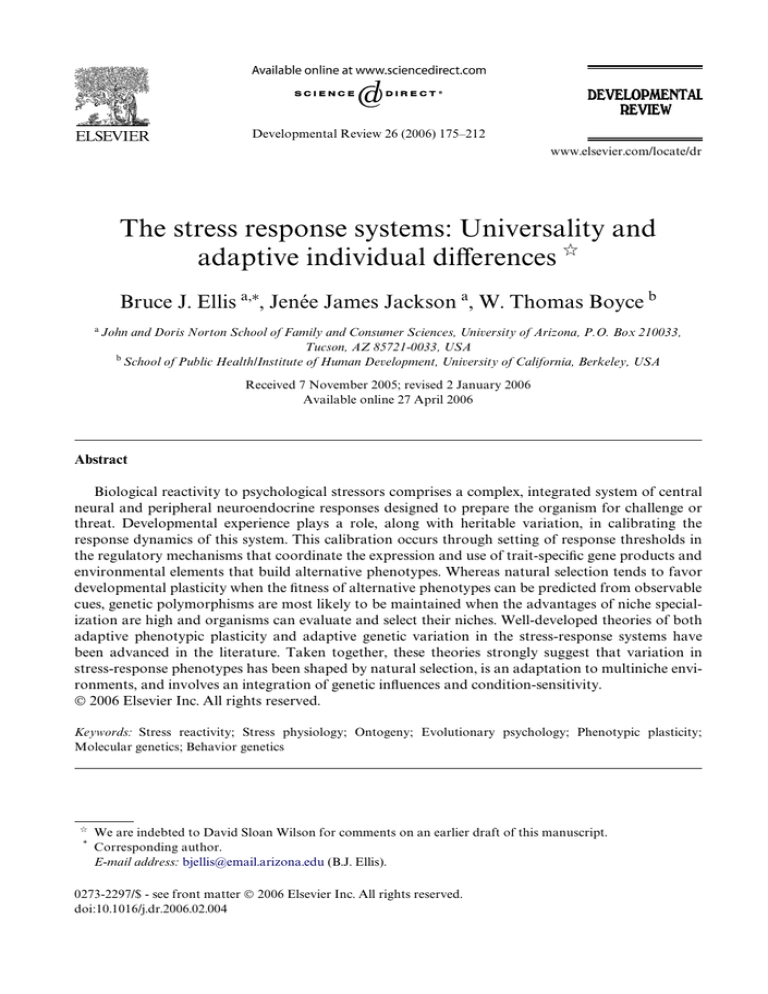
Developmental Review 26 (2006) 175–212
www.elsevier.com/locate/dr
The stress response systems: Universality and
adaptive individual diVerences 夽
Bruce J. Ellis a,¤, Jenée James Jackson a, W. Thomas Boyce b
a
John and Doris Norton School of Family and Consumer Sciences, University of Arizona, P.O. Box 210033,
Tucson, AZ 85721-0033, USA
b
School of Public Health/Institute of Human Development, University of California, Berkeley, USA
Received 7 November 2005; revised 2 January 2006
Available online 27 April 2006
Abstract
Biological reactivity to psychological stressors comprises a complex, integrated system of central
neural and peripheral neuroendocrine responses designed to prepare the organism for challenge or
threat. Developmental experience plays a role, along with heritable variation, in calibrating the
response dynamics of this system. This calibration occurs through setting of response thresholds in
the regulatory mechanisms that coordinate the expression and use of trait-speciWc gene products and
environmental elements that build alternative phenotypes. Whereas natural selection tends to favor
developmental plasticity when the Wtness of alternative phenotypes can be predicted from observable
cues, genetic polymorphisms are most likely to be maintained when the advantages of niche specialization are high and organisms can evaluate and select their niches. Well-developed theories of both
adaptive phenotypic plasticity and adaptive genetic variation in the stress-response systems have
been advanced in the literature. Taken together, these theories strongly suggest that variation in
stress-response phenotypes has been shaped by natural selection, is an adaptation to multiniche environments, and involves an integration of genetic inXuences and condition-sensitivity.
© 2006 Elsevier Inc. All rights reserved.
Keywords: Stress reactivity; Stress physiology; Ontogeny; Evolutionary psychology; Phenotypic plasticity;
Molecular genetics; Behavior genetics
夽
*
We are indebted to David Sloan Wilson for comments on an earlier draft of this manuscript.
Corresponding author.
E-mail address: bjellis@email.arizona.edu (B.J. Ellis).
0273-2297/$ - see front matter © 2006 Elsevier Inc. All rights reserved.
doi:10.1016/j.dr.2006.02.004

